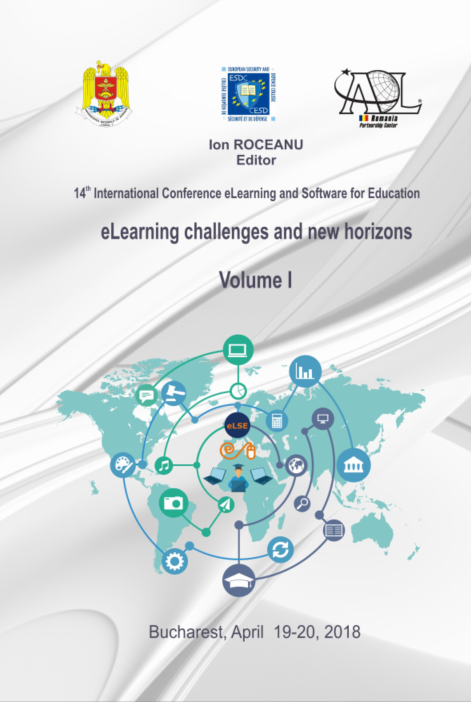Using Online Social Networks as Facilitators of Learning: A Case Study with Two Romanian Universities
Using Online Social Networks as Facilitators of Learning: A Case Study with Two Romanian Universities
Author(s): Dragos Daniel Iordache, Costin PRIBEANU, Gabriel Gorghiu, Valentina Iuliana ManeaSubject(s): Social Sciences, Education
Published by: Carol I National Defence University Publishing House
Keywords: Online social networks; social learning; facilitators of learning;
Summary/Abstract: In recent years, there has been a rapid development of social networks and an increase in their diversity both in terms of functionality and users. Online social networks (OSN) can offer considerable benefits to communication and user relationships as well as benefits for students in learning and participating in online courses and platforms. Among the advantages of using online social networks as facilitators of the educational activities, we mention: support for social learning and blended learning programs, availability for interaction, collaboration, sharing information and resources, encouraging participation and critical thinking, informal education and increasing students' motivation for certain subjects or areas of knowledge. Other positive aspects of using OSN in education are related to the participation of students in discussion groups, using of real-time study materials (microblogging is a simple way to engage in dialogue with other students), flexible academic environment and establishing of relationships between teachers, students and researchers from other institutions. The goal of this work is to explore the potential of using online social networks as facilitators of educational activities in two universities from Romania. Two samples of students have been collected that have various study profiles. The study aims at answering two main research questions: which are the preferred facilitators of learning and which is the weight of time spent on online social networks for university-related activities? On the one hand, the results show that the most important facilitators are the discussion groups, the chat on Facebook and the Facebook page of students’ group. On another hand, the results reveal significant differences between the two universities as regards the preferences and the time spent for academic purposes.
Journal: Conference proceedings of »eLearning and Software for Education« (eLSE)
- Issue Year: 14/2018
- Issue No: 01
- Page Range: 129-134
- Page Count: 6
- Language: English

